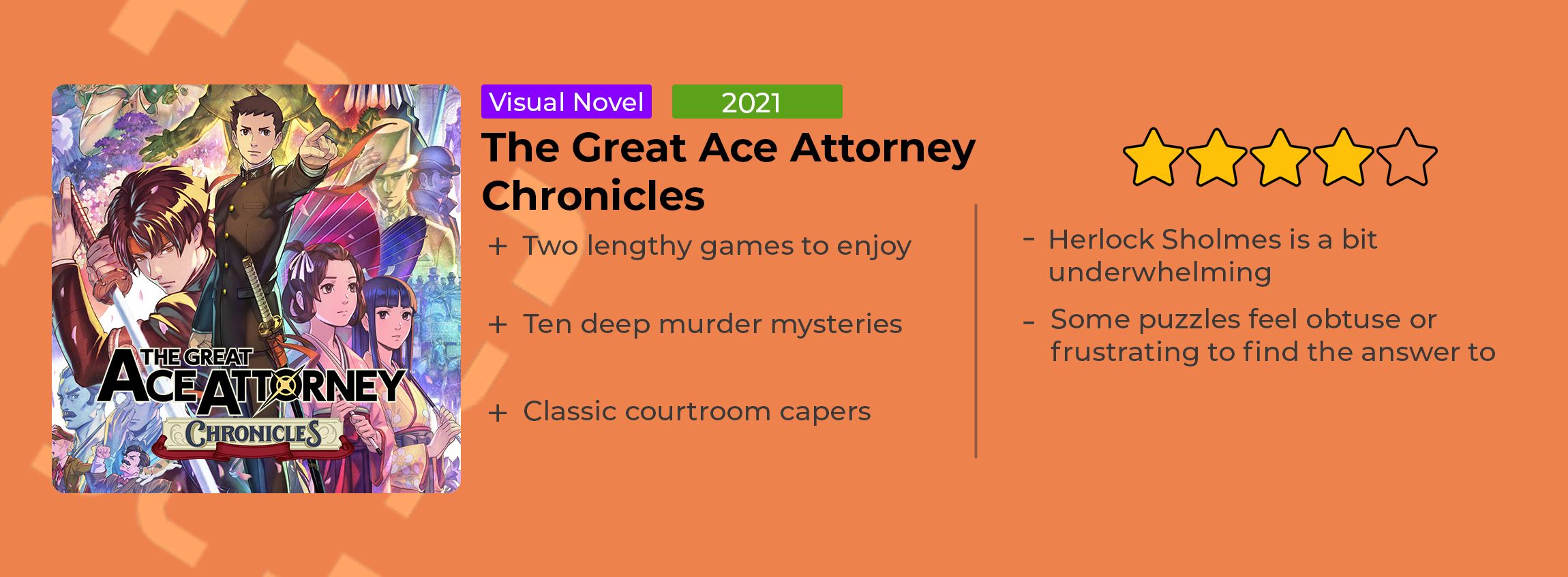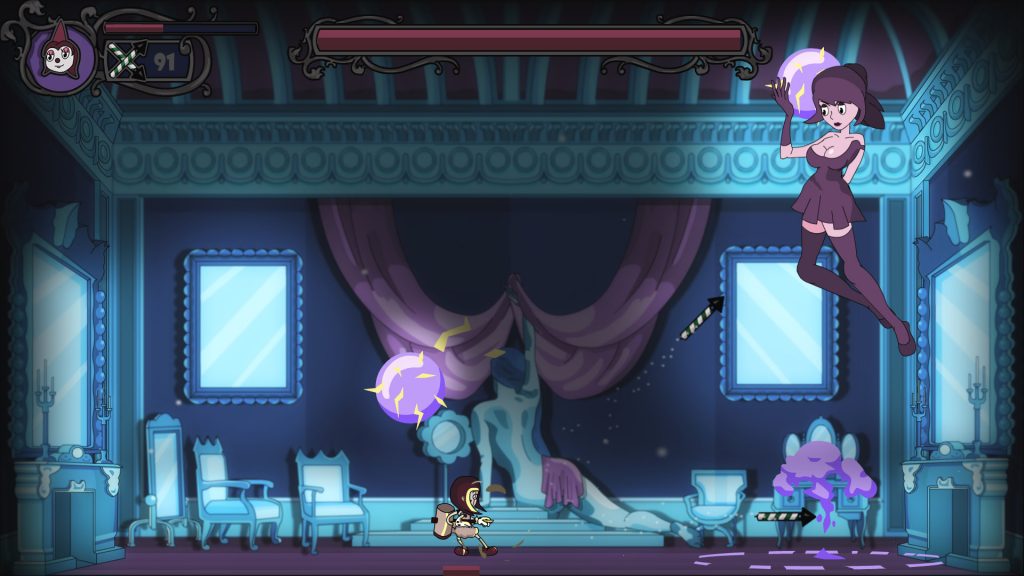In our Slack chat, there's a regularly used emote called "despair_phoenix." It's Phoenix Wright, the original protagonist of the Ace Attorney franchise, with his elbows on the stand, head in his hands, looking like he is about to be executed. It's a feeling of pure hopelessness, and it's hilarious because it happens constantly throughout the Ace Attorney franchise (and our Slack). Your back will be against the wall, everyone in the room will be against you, and there's no obvious way out. Almost every moment in the courtroom feels like the kind of underdog story that Disney sports movies aspire to be, and that's why, despite the oppressive atmosphere and underlying dread, I love playing The Great Ace Attorney Chronicles.
Related: 10 Hilarious Ace Attorney Memes
You play as Ryunosuke Naruhodo, Phoenix Wright's ancestor (the name change is a localisation thing, don't worry about it), and he is a young student that gets accused of a heinous crime – murder. The only way Naruhodo can make it out of this tough situation is by acting as his own defence lawyer, even though he has no training. Luckily he has his faithful friend Kazuma by his side, who is training to be a defence lawyer, and the two of them pull through seemingly disastrous circumstances. Soon after, the two make the long voyage to London, and from there adventures only become more complex and intricate.
Anyone that has played an Ace Attorney game in the past probably knows exactly what to expect from this. You're thrusted into a variety of situations, often with little introduction, and have to dynamically assess what is happening now, and what happened to get us here. Even though it's easy to set the dialogue on autoplay and slowly drift your hand towards your phone to check the latest tweets, missing just a few lines can put you in an awful situation. Characters rattle off a lot of dialogue in their testimonies, but even if you're paying attention as best you can, you might not notice that you can pursue other witnesses while a testimony is being cross-examined, if they react to anything said. There are layers to the dialogue here, and there is always a correct path through, even if you seem to be at a loss.
Being at a loss is too frequent a problem, mind. So often you can tell what the game is hinting at early, by examining evidence closely and paying attention to the dialogue. But even if you've come to the conclusion the game is pointing towards, that doesn't mean you can wrap up the case. You can only produce the "correct" evidence at the exact moment the game desires, and sometimes the testimonies you're dealing with are only tangentially related, the game asking you to draw things out so you can swing back around to the actual case at hand. When a man is murdered in a carriage, you might not immediately think about looking into the driver's earnings, or thinking about what career the main witness has, but the game will still guide you along these lines of inquiry. Every inconsistency, no matter how minor, means something in the grand scheme of this play, and you must act things out exactly according to a script you haven't read.
Related: 10 Things You Should Know Before Starting The Great Ace Attorney Chronicles
Moments like those can feel all too frustrating. The game will essentially tell you that you need to present evidence, and yet all of your evidence is inconsequential – or at least that's the way it seems. But lo and behold, try enough random combinations and you'll surely present a piece of evidence, the music will stop, and Naruhodo will be off on a tangent about something you never even considered. You can save scum your way through these moments since you can save at any time – just save before every big decision and you'll be fine – but that also drains these moments of their tension entirely.
That underdog battle I mentioned before becomes even more intense now that Naruhodo is dealing with British laws and courts. Lord Van Zieks, the "Reaper of the Bailey", is a ruthless prosecutor that doesn't mind being both casually and overtly racist to the Nipponese visitors to Britain, and in addition to him, there's a full jury of six that you must also decisively convince in order to make it through each courtroom engagement. But of course, even the jury has to play to a script, and therefore when you see the scales of justice turn against you, you just have to move on knowing that is exactly how the game is supposed to play out. It's weird, and unfortunate, but even though the game gives you so many choices at any one time, it only ever allows for one correct answer. For all of the advancements the game has made, it also still feels distinctly stuck in its ways.
Those frustrations aren't enough to distract from what is ultimately a wonderful murder mystery adventure, however. Herlock Sholmes makes for a fun support character as he asserts ridiculous findings and allows Naruhodo to step in and fix his flaws, but it's a fairly one-note joke that's played out several times over the course of the two games included in this package. Having said that, there's a lot here, easily 50 hours worth of Ace Attorney shenanigans, and that's hard to object to.
The Great Ace Attorney Chronicles is a Godsend for AA fans, finally compiling and localising two games that the fanbase have been begging for. While the Ace Attorney formula hasn't actually been changed much, what is here is what the fans adore. Interactions with Herlock Sholmes manage to be a highlight, and uncovering mysteries through twisted testimonies is as satisfying as ever.

Score: 4/5
Next:10 Nintendo Switch Games You Forgot Are Coming Out This Summer
The Great Ace Attorney Chronicles is available on Nintendo Switch and PS4. PS4 version was tested on PS5 for this review. Review code was provided by the publisher.



